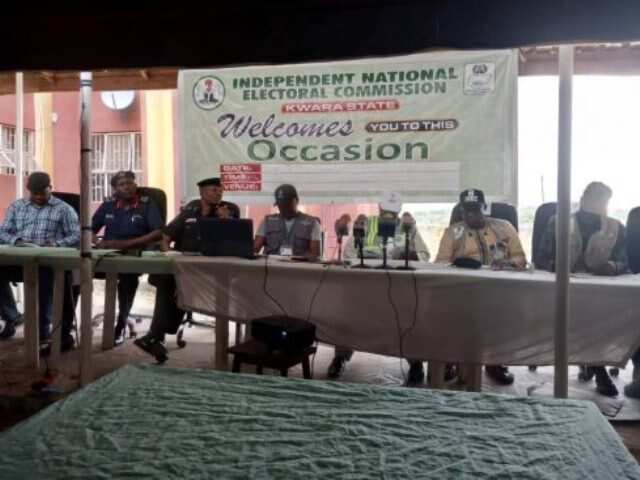The Independent National Electoral Commission (INEC) is reportedly set to declare the results of the presidential and National Assembly elections held in Kwara state on Saturday, February 23.
Report by Daily Trust claims that the commission's officials are set on ground to make the official announcement.
READ ALSO: Follow Live updates: Situation reports and collation of results across the country - Day 2

INEC officials in Kwara about to announce results of election
Source: UGC
Legit.ng notes that apart from the two main presidential candidates, President Muhammadu Buhari and Atiku Abubakar, political personalities like the Senate president, Bukola Saraki, are set to know their fate.
PAY ATTENTION: Download our mobile app to enjoy the latest news update
Meanwhile, Legit.ng previously reported that the presidential candidate of the Peoples Democratic Party (PDP) Atiku Abubakar, defeated his opponent, President Muhammadu Buhari, in the polling unit of the Senate President Bukola Saraki in Kwara state.
Atiku garnered 219 votes while President Buhari of the All Progressives Congress (APC) polled 68 votes.
NAIJ.com (naija.ng) -> Legit.ng We keep evolving to serve our readers better
Vice President Yemi Osinbajo casts his vote, boasts of APC victory - on Legit TV
Source: Legit.ng
from Nigeria News today & Breaking Naija news ▷ Read on Legit.ng 24/7 https://ift.tt/2U5X0CY
via EDUPEDIA24/7
Comments
Post a Comment